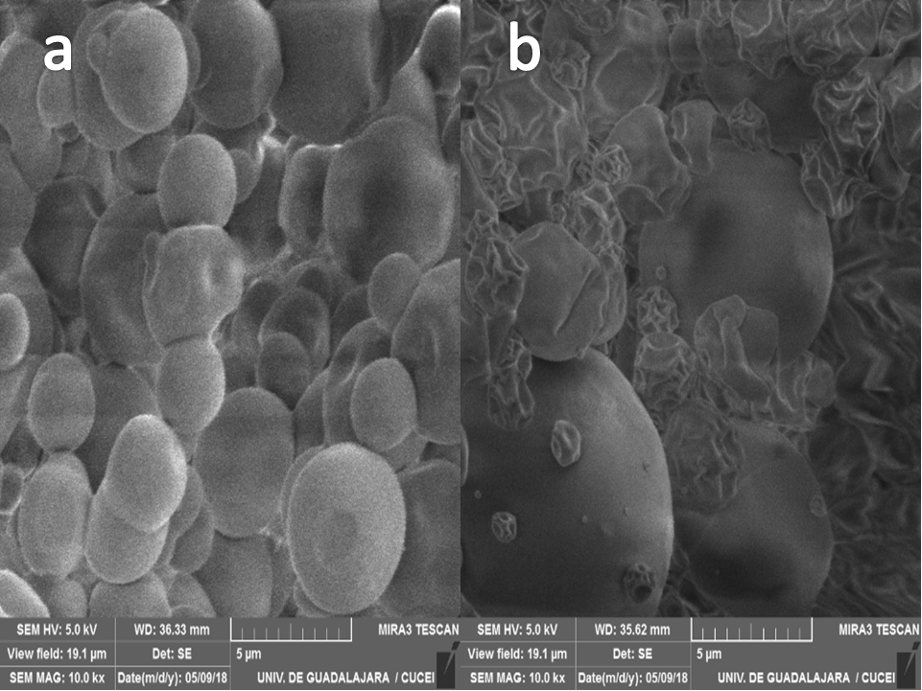 |
|
In the interest of getting a functional and non-dairy food product which improves human health, this research was conducted to obtain an edible gel containing probiotic Lactobacillus fermentum A15, and bioactive compounds from an autochthonous Mexican fruit known as chicozapote (Manilkara zapota). Probiotic and fruit pulp were encapsulated separately by means of the spray-drying process and later incorporated into the food matrix. Water activity, hygroscopicity, total phenolic compounds, total flavonoids and antioxidant capacity were determined on the pulp fruit microcapsules. Meanwhile viability was measured on the microencapsulated probiotic. Both microparticles were incorporated in a food gel and its shelf-life stability was evaluated by measuring the evolution of the afore-mentioned parameters with time. The viability of probiotics (1x107 CFU/mL) was highlighted. The results suggest that this new non-dairy product could be of particular interest for lactose-intolerant consumers and attractive to the new food market demands.
Keywords: Functional food, microencapsulation, chicozapote, probiotics survival, protective agent, non-dairy food..
|
|
 |

